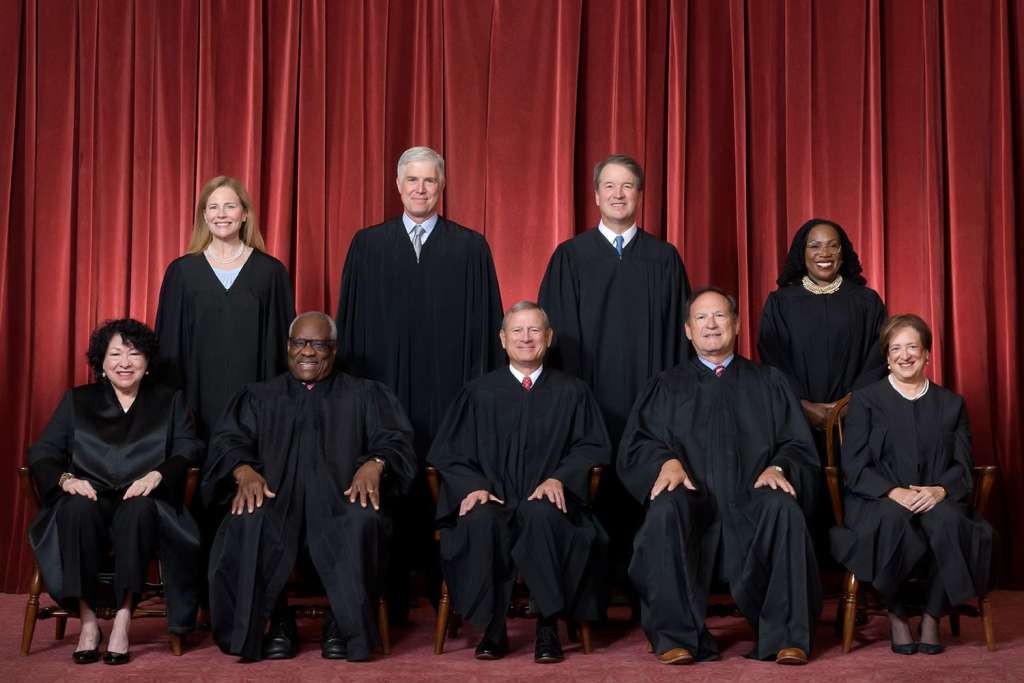On January 13, the United States Supreme Court declined to hear two Second Amendment-related cases, the first being a challenge to Delaware’s “assault weapons” and standard-capacity magazine ban and the second covering Maryland handgun licensing requirements. As I intend to be critical of the High Court, I offer in fairness to concede that its previously issued rulings that should have been considered by state legislation, especially in the case of Delaware, but were not. I understand the monotony of redundant legal challenges the justices have already ruled upon. However, ignoring or turning away these redundancies fails to address the real issue: lawmakers’ refusal to adhere to the Supreme Court’s decisions.
In the case of Delaware’s ban on “assault weapons” and magazines with a capacity greater than 17 rounds, it is clear that such an action intends to violate Americans’ Second Amendment rights in blatant protest of the 2022 standard set by the U.S. Supreme Court in New York State Rifle & Pistol Association Inc. v. Bruen. The ban follows a wilful pattern by Democrats across the country who have adopted indifference as a tactic when they disagree with the high court, so much so that Chief Justice John Roberts warned against disregarding the Supreme Court’s rulings this past December.
But what is a warning unbacked by consequence? Even in child psychology, it is understood that warnings themselves are not a consequence for misbehavior, serving as nothing more than empty words that can not withstand the resilience of even the most mild of tyrannical toddlers. While some may point out that the Supreme Court, with a 6-3 conservative majority, has taken an expansive view of gun rights in major rulings over recent years, I think the real point is that these rulings have largely been reduced to symbolic gestures or even meaningless suggestions as they have not deterred Democrats from continuing to violate the same principles over and over.
Interestingly enough, justices have not yet acted upon current appeals largely involving the same issues, one being Maryland’s “assault weapons” ban and the other Rhode Island’s prohibition of standard capacity magazines.
In Delaware, the ban on “assault weapons” allows for those firearms already owned and classified under the law to be grandfathered in while the measure prohibiting magazine capacity is being applied to devices owned before the law took effect, unlawfully forcing the disposal or confiscation of constitutionally protected private property.
Justices also rejected an appeal by Maryland Shall Issue and additional plaintiffs of a lower court ruling holding that the state’s licensing law is permissible under the U.S. Constitution. Maryland’s 2013 law requires residents to obtain a qualification license through training, fingerprinting and background checks before they are permitted to purchase a handgun. In contrast, the U.S. Constitution uses plain text to recognize the inherent right of all American citizens to keep and bear arms without infringement. Challengers to the law cite the requirements as being too burdensome, delaying the process by “a month or longer,” begging the question as to whether a right delayed is truly a right.
While conservatives remain hopeful about upcoming SCOTUS cases, such as Smith & Wesson’s defense against Mexico’s ridiculous lawsuit accusing the company of aiding the illegal trafficking of firearms to drug cartels, and even more hopeful for a resurgence of Second Amendment rights under the Trump administration, it remains to be seen whether the high court will remain a relevant authority. With Democrats figuratively spitting in justices’ faces and using their rulings as toilet paper, all without repercussion, it has become apparent that we are slipping further away from the rule of law and dangerously close to a system ruled by unchecked indifference. Historically speaking, a nation’s answer to this question often leads to an undesirable yet unavoidable conflict. Just ask Thomas Jefferson. Hopefully, however, the country’s shift with the recent presidential election will also empower the Supreme Court to back its rulings with something more than empty warnings, as we already seem to be asking ourselves if the emperor is getting a little chilly.
Read full article here


